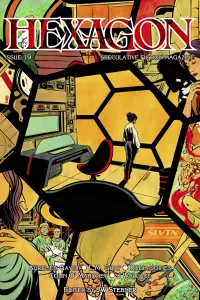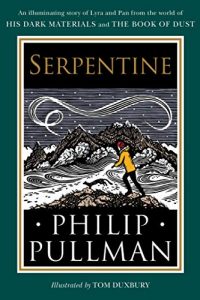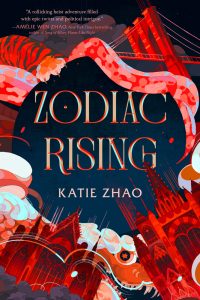Gabino Iglesias Reviews Near the Bone by Christina Henry
 Near the Bone, Christina Henry (Berkley 978-0-59319-976-6, $17.00, 336pp, tp) April 2021. Cover by Spencer Fuller.
Near the Bone, Christina Henry (Berkley 978-0-59319-976-6, $17.00, 336pp, tp) April 2021. Cover by Spencer Fuller.
Christina Henry’s Near the Bone is a horror novel that brings together real life horrors and monsters that walk a fine line between the supernatural and the what-if world of cryptozoology. At once a narrative about abuse and survival and a tale of creatures stalking people up on a snow-covered mountain, Near the Bone is a tense, entertaining read with some great explosions of violence and a story of kidnapping and battling identities at its core.
Mattie lives in a small cabin with her husband William. She doesn’t remember a time before William and life in the cabin, which has no indoor plumbing. Mattie’s existence is about chores, following orders, performing her wifely duties in an attempt to give William the sons he desperately craves, and surviving William’s short temper and constant – and brutal – physical abuse. When Mattie finds the mutilated body of a fox in the woods, things change quickly. William and Mattie go exploring and find a cave full of carefully arranged bones and a pile of viscera. There’s something out in the woods, something big, something that could hurt them, and soon others come looking for it as well. Interacting with strangers, which Mattie never does, sets her on a path to freedom and helps her remember she’s not Mattie; she’s Samantha. As her previous life comes back in bits and pieces, it crashes against Mattie’s reality and the perilous situation she finds herself in: hurt, barely able to talk, and on the run from William and whatever is hiding in the woods, in the company of three strangers.
The beauty of Near the Bone is that it delivers big, bad monsters hiding in the woods but also a very human one, and the human one is often worse than the supernatural ones. William is a despicable character. He kidnapped, groomed, and then more-or-less enslaved Samantha, turning her into Mattie via physical and psychological abuse, religious zealotry, and deprivation. More than a wife, William raised himself a slave, and he does everything in his power to keep her and the crimes he committed to get her from the rest of the world. Luckily, Mattie’s arc includes many important realizations, and her anger at William blossoms into hatred and a thirst for revenge that feels righteous.
Horror fiction can make readers feel a plethora of things, and the sadness in this novel overpowers the horror. Yes, piles of bones, dead animals hung from trees, and a huge creature silently stalking people in the dark are pure horror, but Mattie’s inner world is even darker, and the way Henry writes about it is brilliant:
Mattie didn’t believe in happy endings. She didn’t even believe in happy middles. It was only at the beginning part of the story, when you were young and didn’t know any better, that you could be happy and carefree. Once life piled up on you, happiness was impossible.
Mattie/Samatha’s life slowly comes back to her, and as it does, it is revealed to readers. The slow unveiling of her past and the way she came to be trapped with William in that cabin is chilling and makes Near the Bone a psychological thriller and a crime novel as much as it is a horror narrative. As Mattie tries to escape with the people that came up to the mountain looking for the mysterious cryptid inhabiting its woods, she is exposed to a different way of doing things, and this forces her to internalize what her life has been and how her behavior has changed from what she knows would be right to what she actually did. In a way, her self-analysis is as devastating as William’s fists:
Jen watched Mattie closely, and Mattie felt a sudden flush of shame. How could Mattie explain to this woman, this woman so free and easy and independent, how one man had kept Mattie locked in a cabin for so many years? How could she explain that after a time she had allowed him to do that? Mattie should have fought. She should have run. She should have tried harder, instead of just accepting her fate.
Near the Bone packs a perfect combination of creature-feature aesthetics and tension with a deep, emotionally gritty story about a young woman ripped from a comfortable life and brainwashed into thinking that getting punched regularly and living without indoor plumbing and no human contact other than her husband is acceptable. Those two things intertwine perfectly here and give the novel a strange depth that makes it at once heart wrenching and deliciously pulpy. Henry is a talented storyteller, and this novel entertains while also delivering a message about agency, taking control, and how sometimes vengeance is completely acceptable. That it does all that, while also delivering monsters that are always there but only show glimpses of themselves until the end, is icing on the horrific cake.
Gabino Iglesias is a writer, journalist, professor, and book reviewer living in Austin TX. He is the author of Zero Saints and Coyote Songs and the editor of Both Sides. His work has been nominated to the Bram Stoker and Locus Awards and won the Wonderland Book Award for Best Novel in 2019. His short stories have appeared in a plethora of anthologies and his non-fiction has appeared in the New York Times, the Los Angeles Times, and CrimeReads. His work has been published in five languages, optioned for film, and praised by authors as diverse as Roxane Gay, David Joy, Jerry Stahl, and Meg Gardiner. His reviews appear regularly in places like NPR, Publishers Weekly, the San Francisco Chronicle, Criminal Element, Mystery Tribune, Vol. 1 Brooklyn, the Los Angeles Review of Books, and other print and online venues. He’s been a juror for the Shirley Jackson Awards twice and has judged the PANK Big Book Contest, the Splatterpunk Awards, and the Newfound Prose Prize. He teaches creative writing at Southern New Hampshire University’s online MFA program. You can find him on Twitter at @Gabino_Iglesias.
This review and more like it in the September 2021 issue of Locus.
 While you are here, please take a moment to support Locus with a one-time or recurring donation. We rely on reader donations to keep the magazine and site going, and would like to keep the site paywall free, but WE NEED YOUR FINANCIAL SUPPORT to continue quality coverage of the science fiction and fantasy field.
While you are here, please take a moment to support Locus with a one-time or recurring donation. We rely on reader donations to keep the magazine and site going, and would like to keep the site paywall free, but WE NEED YOUR FINANCIAL SUPPORT to continue quality coverage of the science fiction and fantasy field.
©Locus Magazine. Copyrighted material may not be republished without permission of LSFF.







